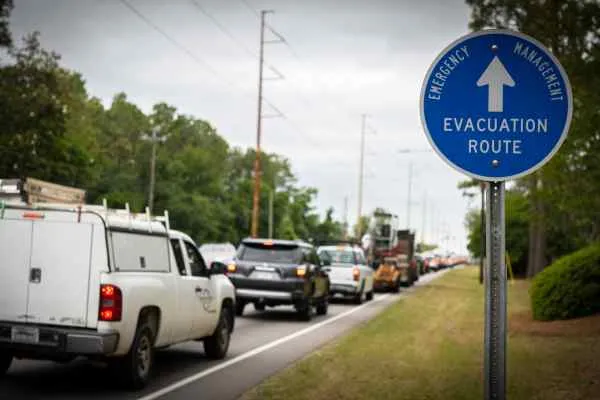Storm forecasters do everything they can to predict where a hurricane will land and where it will go, but these storms are unpredictable and can be dangerous. Learn how to prepare for a hurricane and what to do when it's over with this guide on hurricane safety and readiness.
What Is a Hurricane?
A hurricane is an intense tropical storm with strong winds that form over the ocean and move onto land at speeds over 74 mph. Hurricanes bring heavy rainfall and storm surges that cause devastating coastal flooding, and they can travel up to 200 miles inland. If you live in an area prone to hurricanes, commonly known as Hurricane Alley, you should plan and be prepared for a storm.
What to Do Before a Hurricane
The most important part of preparing for hurricanes is having a plan in place. Discover what it takes to be ready for a hurricane, learn how to protect your loved ones and personal belongings from tropical storms, and get through a hurricane safely.
1. Monitor Official Sources for Storm Warnings
Stay on top of the news during hurricane season checking for weather warnings in your area. News broadcasts and local emergency services will provide updates on impending hurricane activity and help you plan accordingly. You can sign up for alerts on fema.gov.
2. Gather Food and Water Supplies
Most experts recommend having at least 3 to 5 days of food and water if you live in a hurricane-prone area. Canned, dried, and other non-perishable foods are ideal.
3. Keep A "Go-Bag" Packed
Pack an emergency go-bag that you can easily grab to keep with you during the storm. Be sure to include the following items:
4. Purchase Backup Electricity Options
A backup generator for your home is critical if you live on the Atlantic Coast. Look into options like a hand-crank radio, long-lasting battery-powered lights, and an alternate cooking source for long-term power outages.
5. Develop Evacuation Plans
Create an evacuation plan that includes multiple routes and alternate destinations. Include information on where you will stay and the anticipated costs. Go online and learn more about evacuation zones in your area, and follow evacuation orders when they are given.
6. Registering For Special Needs Assistance
Register with your local emergency management office if anyone in your family has disabilities or special needs. Registration will qualify you for sheltering and transportation programs.
If you registered for emergency assistance, contact local emergency services when you successfully reach your destination. This helps the services accurately report the location of evacuees and send rescue teams where required.
7. Write Down Emergency Numbers and Contacts
Many people rely on their phones to store emergency numbers and contacts, but you can’t trust that your phone will have power during an emergency. Make a list of written numbers in your go bag that includes family, friends, coworkers, and neighbors.
Additionally, designate one out-of-state contact that everyone in your family checks in with in case you are separated during the storm and lose phone service.






Receive discounts, news and blog articles: